Implicit Magic in Fantasy Fiction Can Stir Our Longing for Transcendent Myth
In my last article, “Fictional Magic Systems Can Go Beyond Rules and Reveal Deeper Characters,” we introduced my dislike of the terms “hard” and “soft” applied to magic systems in fiction.
In place of this divide (echoed by authors like Brandon Sanderson), we instead explored my concept of explicit systems of fictional magic, with their emphasis on rules, versus implicit magic that lets a story focus more on its world and characters. For examples, we looked at implicit magic-oriented fantasies by C. S. Lewis and J. R. R. Tolkien as well as N. D. Wilson and Naomi Novik.
This time, let’s survey how implicit magic systems make use of subtler magic “rules” to help build a mythic mindset in several stories.
We’ll start with Diana Wynne Jones.
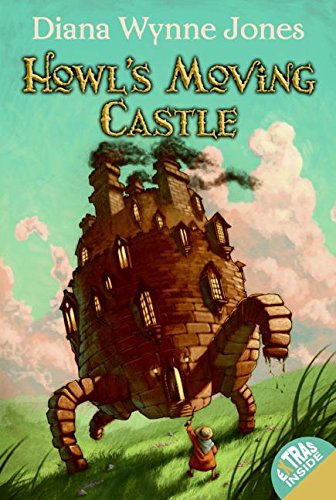 Diana Wynne Jones’s Howl’s Moving Castle
Diana Wynne Jones’s Howl’s Moving Castle
Jones’s fantasy Howl’s Moving Castle has become a classic fairy tale. Its magic system, however, is broad and thinly painted. In this magical world, we don’t learn all the ins and outs of the magic. Jones gives us just enough details to feel like the important elements make sense, and the rest just works because it’s right. Jones deftly sets the stage for her world, using a few sentences to construct a land of seven-league boots and fortunes that favor younger daughters over their elders.
This brings us to an important principle of implicit magic systems: they must fit their stories and their worlds just as well as explicit systems, if not more so. If an author’s world does not match well to her magic system, the tale won’t resonate with readers and the power of a mythic worldview will fail.
Still, mythic worldviews aren’t limited to fairy tales. Let’s look at modern settings that benefit from the mythic mindset while establishing a real-world grounding.
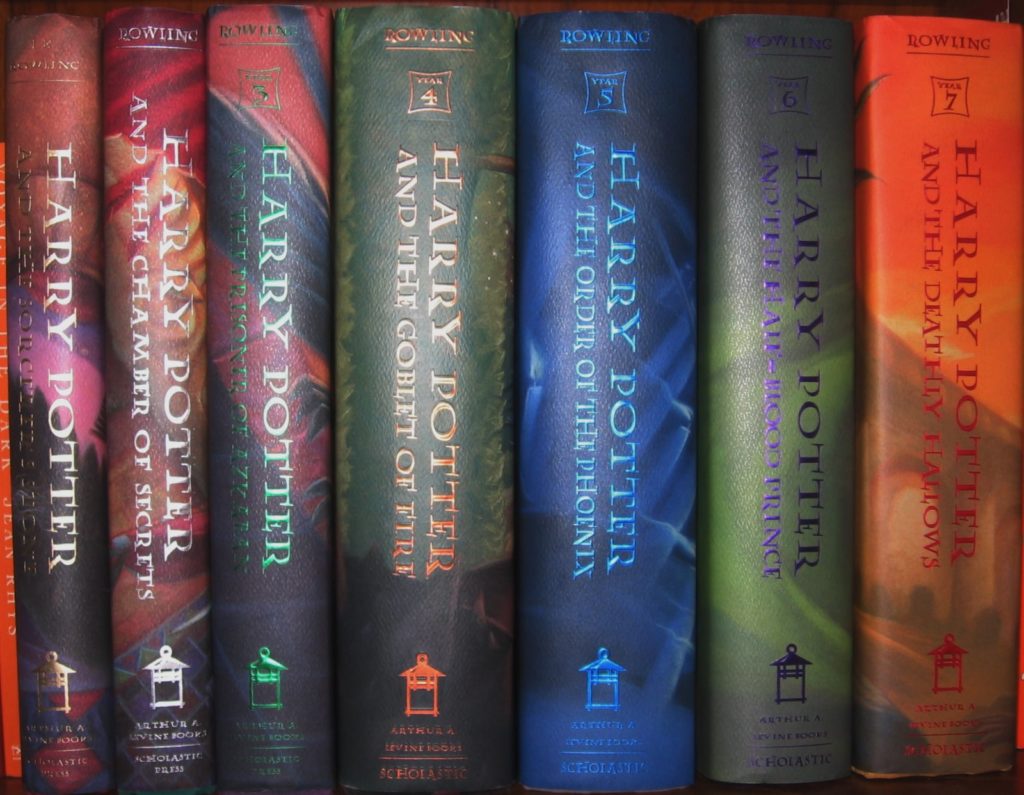 J. K. Rowling’s Harry Potter series
J. K. Rowling’s Harry Potter series
The Harry Potter series utilizes one of the most explicit magic systems on my list.1
Rowling’s seven books show a lot of rules and practices, while still not recognizing many of the fundamentals. For example, Gamp’s Law of Elemental Transfiguration, which is apparently a foundational piece of wizarding knowledge, isn’t even mentioned until book seven. Even then, it’s only stated just in time to explain why Harry and company can’t just make food out of thin air.
Meanwhile, instead of relying on magical knowhow, the Potter books tend to rely on a mythic worldview to resolve conflicts. Love defeats the Dark Lord. Loyalty brings the sword that will slay the basilisk. If you’re willing to die for others, you’ll still enjoy the results of a life truly lived.
Two other stories on my list reside near the middle ground with Mr. Potter.
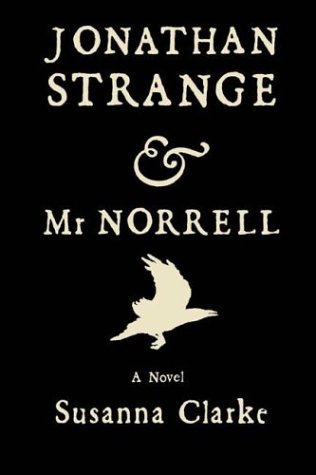 Susanna Clarke’s Jonathan Strange & Mr Norrell
Susanna Clarke’s Jonathan Strange & Mr Norrell
Clarke’s historical fantasy presents a prescriptive/intuitive conflict similar to Uprooted, although much less pronounced.
Her titular characters hold different views of magic: pupil Jonathan Strange is drawn to the older, more mythic ideas of Faerie and the Raven King, whereas teacher Norrell would rather leave such things behind him.
This story outlines plenty of rules, but rarely invites readers to know them. Strange and Norrell think they know the rules, but the book clearly shows them just as much in the dark as we are. Perhaps they are even more confused, since we receive the perspectives of other characters, some of whom cannot or simply will not communicate with the two magicians.2 The novel’s resolution especially demonstrates the mythical, implicit view of magic, despite the characters and their preoccupations with magic’s rules. As I note in my review:
The lowly man is crowned king, lost loved ones are restored, judgment is passed, and prophecy is fulfilled. Even if the preceding hundreds of pages were not filled with humorous, insightful, and entertaining characters, the last section of Jonathan Strange & Mr Norrell would be worth reading because of its bringing home this truth: reality is bigger than we think; the King is watching, even when we think he has abandoned us; and his words will not return void.3
In this mythic fairy-story ending, which rights wrongs and reveals truth, the moral comes home: the minutiae of magic’s inner workings are not important. Rather, the characters’ relationships and world should take preeminence.4
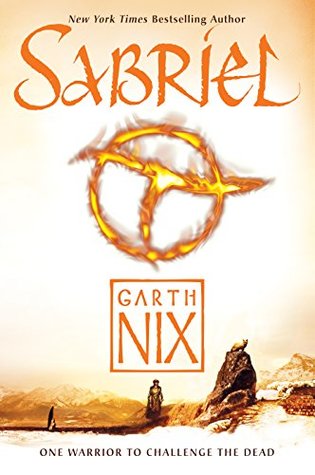 Garth Nix’s Old Kingdom series
Garth Nix’s Old Kingdom series
Veering closer to my magic spectrum’s explicit end, we find Garth Nix’s fantastic Old Kingdom series.5 This series spans five novels and two novellas,6 and follows a family of necromancers called Abhorsens. They inherit this title, similar to royalty. Their sole purpose is to keep the dead from returning.
This world actually has two forms of magic. First is the practically holy Charter that seals people from use in necromancy. Second is the dark, necromantic Free Magic—so called because it is not bound to the Charter, but as its users learn, it is anything but free in terms of either payment or liberty.
Nix’s world is also poised, like Narnia and Wonderland, just on the other side of a real-world country. Here it’s called Ancelstierre, but practically it’s a version of England whose boundary with a magical kingdom has been known to exist for centuries. Here at this mythic intersectionality of magical and mundane, more than one old evil finds release because of Ancelstierre’s citizens’ lack of belief in magic.
Nix delivers explicit rules for his magic. Charter magic is very intricate, relying on its mages’ memory and focus to work. Free Magic has limits, and the Abhorsen isn’t exempt from its siren call. But Nix’s stories still resonate with mythic power, with the triumph of good over evil, not just of one powerful group over another. Nix never lays out every possible working of his magic, but his world is married to this pairing of rebellious evil and living words.7
Let’s consider two more modern stories before we end.
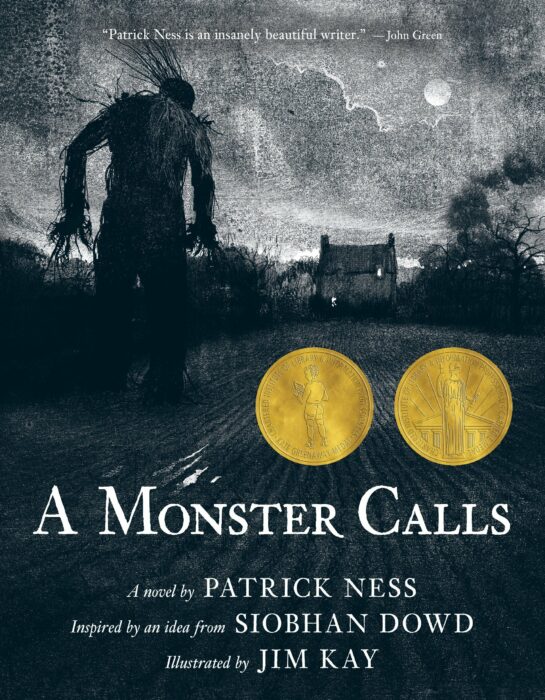 Patrick Ness’s A Monster Calls
Patrick Ness’s A Monster Calls
Patrick Ness’s A Monster Calls has no magic system whatsoever. His story may not even be fantasy in the label’s usual sense.8 I mention it here to demonstrate the power of a mythical story. A Monster Calls is the story of Conor O’Malley, whose mother is dying of cancer, and the monster that appears at his bedroom window to tell him stories that will help him face that reality. It is a moving story full of insight and emotion.9 Ness never presents the monster’s origin and nature scientifically, but uses mythological framework to present a story on living and dying well.
Nail Gaiman’s Neverwhere
Neil Gaiman’s Neverwhere is probably my favorite Gaiman work (close behind The Graveyard Book). Neverwhere follows the tradition of Alice’s Adventures in Wonderland and The Borrowers, presenting a world that thrives alongside the England we know, while still keeping separate. This story’s version of London falls between the cracks. Its main magical character is the Lady Door. True to her name, she can create doorways to other places. Readers need to know this magic’s rules, but Gaiman keeps his descriptions minimal.
Gaiman’s story also includes angels. As usual for him, he somehow captures the presence and potential menace of such beings without sacrificing their place as characters. They bring one flaw I find in Neverwhere’s explicitly magical moments, when the villainous angel is (shall we say) evacuated not by God’s just retribution for its actions, but by Lady Door’s clever use of her magic. This moment fails to resonate on the mythic level we expect from Gaimain.10
Implicit magic is about people, not just plots
As I said in this series’s first part, I don’t disagree with Sanderson’s statements about magic systems, particularly his second law, that limitations make the magic more interesting and compelling, or his third law, that a story should build on what it has before adding something new. In fact, most of the stories we’ve discussed often exemplify this.11 Limitations on magic drive plots forward for Novik, Wilson, and Tolkien. Howl’s Moving Castle is practically built around limitations and proscriptions, which also feature in Jonathan Strange and Mr Norrell.
This may be the final element we need to define and discuss implicit magic systems. So, to review, implicit magic systems:
- Operate with few if any explicitly stated rules of magic, but keep some rules hidden behind the scenes from readers.
- Tend to exist in stories that stem from a mythic mindset that values the fairy-story genre (even if the story is not itself a fairy tale) and that uses emotional logic rather than magical cleverness to drive resolutions.
- Often focus on limitations in magic, similar to the focus of explicit systems.
- Must be matched with great care to their stories and worlds to preserve their resonance.
If we properly consider these factors, we can avoid feeling bound to explicit magic systems that power plots. Instead we can better enjoy stories that instill wonder, joy, and hope in their characters and us as their readers. We can dive into the well of fairy-story and draw up living water for our souls.
What other stories operate on an implicit magic system? Where else have you seen a mythic mindset in fantasy fiction or any other fiction?
- Novelist Brandon Sanderson places Rowling’s fantasy right in the middle of his hard-and-soft magic spectrum, the spectrum I’ve been questioning in my articles. ↩
- I’ve written elsewhere about the mythical framework of Clarke’s novel. See Elijah David, “‘Jonathan Strange & Mr Norrell’ Explores Magic, Morals, and Faith,” Speculative Faith, April 28, 2015. ↩
- Ibid. ↩
- In fact, one of the main conflicts is that Strange’s relationship to his wife is less preeminent in his life than it should be due to his obsession with his rivalry with Norrell. ↩
- It’s also called the Abhorsen series. ↩
- A sixth novel, Terciel and Elinor, is scheduled for release in November 2021. ↩
- Nix is not a Christian, yet I find the portrayal of the Charter to be very close to a Christian idea of the Holy Spirit’s omnipresence and Christ as the Living Word. ↩
- Some could argue that A Monster Calls is magical realism, for the monster itself is never seen by anyone by Conor, although the film adaptation takes this ambiguity in a different direction. ↩
- A Monster Calls also features a friendship that is broken and healed through biblical forgiveness. ↩
- Even when Gaiman writes comics or film scripts, he usually operates from a mythic mindset. ↩
- Garth Nix’s books do an especially fine job of simply building on already established ideas. ↩





























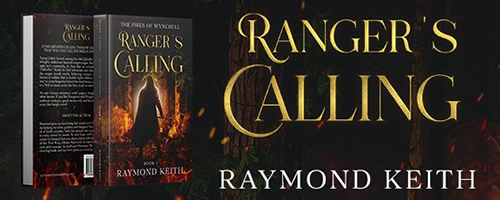
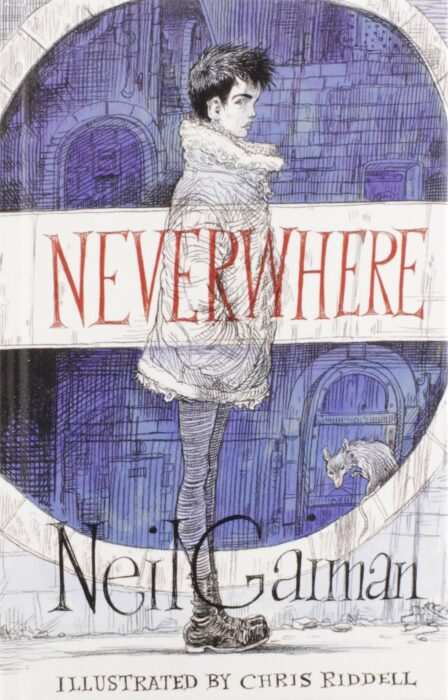


I’m rereading Howl’s Moving Castle right now, and it also pulls on fairy tale tropes with the rule of three, and things not being what they seem all throughout the book.